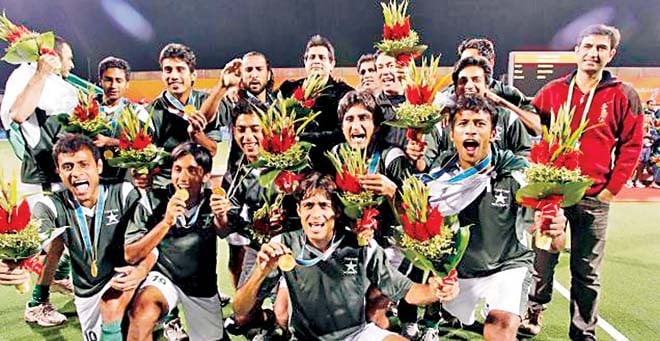
The South Korean city of Incheon will play host to the Asian Games -- featuring 45 nations -- from September 19 to October 4

We live in a highly politicized and divided world. This fact was evident once again in the international sports arena when the South Korean organisers of the Asian Games 2014 were forced to remove flags of the participating nations just days before the continental extravaganza explodes into action in Incheon.
The reason behind this drastic action was that there was mass outcry in South Korea over the display of North Korean flags in the streets of Incheon. The two Koreas are sworn enemies but the fact that the North is one of the 45 competing nations had forced the hosts to display its flags in the lead up to the Asian Games which gets underway from September 19.
After removing all the national flags the organisers replaced them by flags of the Olympic Council of Asia and the logo of the Asian Games. Later, the North Korean contingent flew into Incheon to a muted reception. North Korea bagged six gold medals at the Asian Games four years ago in Guangzhou, China. Its women’s football team and weightlifters are tipped for gold at this year’s event.
The inaugural edition of the Asian Games took place in New Delhi in 1951. Then the Games was regulated by the Asian Games Federation but since 1982, the Asiad is staged by the Olympic Council of Asia after the breakup of the Asian Games Federation. The Games are recognised by the International Olympic Committee (IOC) and are described as the second largest multi-sport event after the Olympic Games.
A total of nine nations have hosted the Asian Games. Forty-six nations have participated in the Games, including Israel, which was excluded from the Games after their last participation in 1974 in Bangkok.
Pakistan came very close to hosting the Asian Games in 1978 in Islamabad. Originally, the host city was Singapore but it dropped plan to host the Games due to financial problems. Pakistan took the responsibility to host the Games but had to drop its plans due to conflicts with India and Bangladesh. Thailand offered to help and the Games was held in Bangkok.
Before the Asian Games was held, a gathering known as the Far Eastern Games existed which was first mooted in 1912 at a location set between the Empire of Japan, the Philippine Islands and China. The Far Eastern Games were first held in Manila in 1913. Ten more Far Eastern Games were held until 1934. Against the backdrop of the second Sino-Japanese War in 1934, in the face of Japan’s insistence on including Manchu Empire as a competitor nation in the Games, China announced its withdrawal from participation. Consequently, the Far Eastern Games scheduled for 1938 were cancelled.
The number of competition events is scheduled to shrink down to just 35 sports at the 2014 Games to be held in Incheon. 2014 will also see the last Games hosted in an even-numbered year, as the Olympic Council of Asia pushed the subsequent Games to just one year ahead of the Olympic Games. This means the 18th Asian Games which were originally planned for 2018 will be pushed to 2019.
All 45 members affiliated to the Olympic Council of Asia (OCA) are eligible to take part in the Games. In history, 46 National Olympic Committees (NOCs) have sent competitors to the Games. Due to its continuing ambiguous political status, Taiwan has participated in the Games under the flag of Chinese Taipei since 1990. Macau is allowed to compete as one of the NOCs in Asian Games, despite not being recognized by the International Olympic Committee (IOC) for participation in the Olympic Games.
In 2007, the President of OCA, Sheikh Ahmed Al-Fahad Al-Ahmed Al-Sabah, rejected the proposal to allow Australia to participate in the Games. He stated that while Australia would add good value to the Asian Games, it would be unfair to the other NOCs in Oceania.
Only seven countries -- India, Indonesia, Japan, the Philippines, Sri Lanka, Singapore and Thailand -- have competed in all editions of the games.
Pakistan has participated in the Asian Games since the second edition in 1954. It was one of the first five founding members of the Asian Games Federation on 13 February 1949, in New Delhi, the organisation which was disbanded on 26 November 1981, and replaced by the Olympic Council of Asia.
Pakistan’s best Asian Games performance came in 1962 in Jakarta when they finished at the fourth place on the medals table with 28 medals that included eight gold medals. At the previous edition of the Games held in China, they won eight medals, three of them gold, to take the 20th spot on the medals table.
They are unlikely to much better at Incheon as Pakistan sports has been going through a lot of turmoil in the lead up to this year’s Asian Games. Though a 144-member contingent will represent the country in Incheon, very few of them will stand any chances of winning medals there.